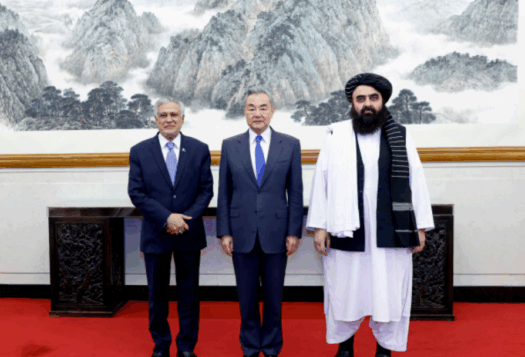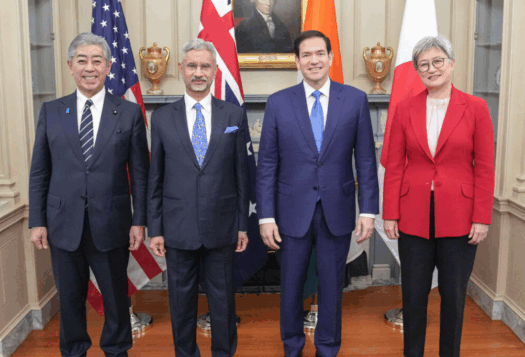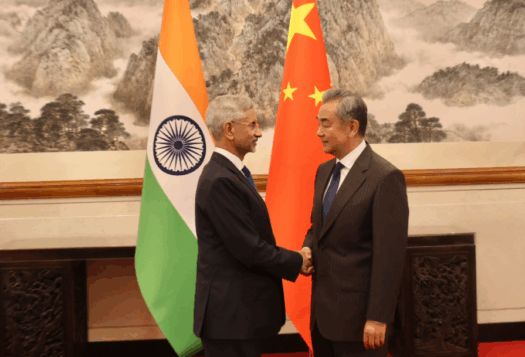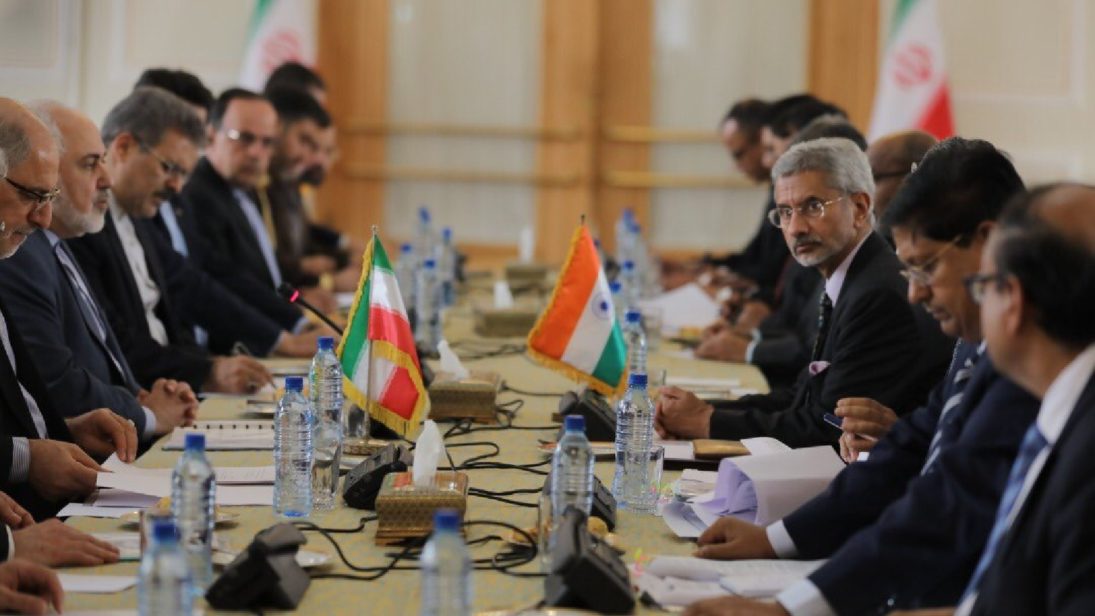
The United States recently tightened its “maximum pressure” strategy on Iran with more sanctions imposed in the wake of an attack by pro-Iran militias that killed two American soldiers in Iraq. The new sanctions along with the existing ones have brought debilitating effects on Iran’s economy by crippling the country’s ability to contain the fast-spreading coronavirus (COVID-19), which has infected more than 80,000 with the death toll over 5,000 in Iran. Iran has urged the United States to lift the sanctions and appealed for help from other countries—including India—to overlook the sanctions in the help to fight against COVID-19. While India-Iran relations have largely been cordial, renewed U.S.-Iranian tensions under the Trump administration, including U.S. withdrawal from the Joint Comprehensive Plan of Action, new Iran sanctions, and pressure on India and other countries to reduce dependence on ties with Iran have heightened the strain in India’s delicate balancing between Washington and Tehran.
Earlier this year, the assassination of Iranian commander Qassem Soleimani drew India further into the U.S.-Iranian rivalry. While being cautious to avoid blaming Washington, India downplayed the incident, seemingly siding with the United States. Iran’s recent harsh criticism against India’s Kashmir policy, the Citizenship Amendment Act, and the Delhi communal riots can be seen in this light. That is, beyond ideological affirmatives, it was also an expression of Tehran’s discontent over New Delhi’s seemingly growing distance with Tehran and tilt towards Washington. Although New Delhi has tried to balance its relationship with Washington and Tehran, ongoing strain in Indo-Iran relations could have significant repercussions for India’s regional economic and geostrategic interests, and the COVID-19 crisis represents an important opportunity for India to begin rapprochement.
Ongoing strain in Indo-Iran relations could have significant repercussions for India’s regional economic and geostrategic interests, and the COVID-19 crisis represents an important opportunity for India to begin rapprochement.
A Critical Litmus Test for India
Iran occupies a significant place in India’s foreign policy for West Asia with considerable importance in terms of energy, economic, and geostrategic interests in Delhi’s foreign policy calculus.
Economically, energy and connectivity primarily define India-Iran relations. Prior to U.S. sanctions, India was Iran’s second-biggest oil importer. Even after India stopped oil imports in the wake of the U.S. sanctions under Trump, Iran would continue to remain a major future potential source of India’s energy. As for connectivity, Chabahar port in southeast Iran is expected to facilitate India’s active and integral participation in the Central Asian economy and foster greater interdependence between the two countries. Iran is a major market for India’s agricultural products and talks have been ongoing for a Preferential Trade Agreement which can considerably expand the Iranian market and diversify India’s exports.
Referring to Iran as a country within its immediate security space, past strategic relations between India and Iran include mutual cooperation on maritime security, terrorism, and organized crime. The Chabahar port would enhance India’s reach in Central Asia, particularly without having to traverse through China or Pakistan. Wider access to the region also contributes to India’s efforts to counter the growing influence of Pakistan and China in the region. Additionally, some have noted Chabahar would enable India to monitor Pakistan and China’s naval developments.
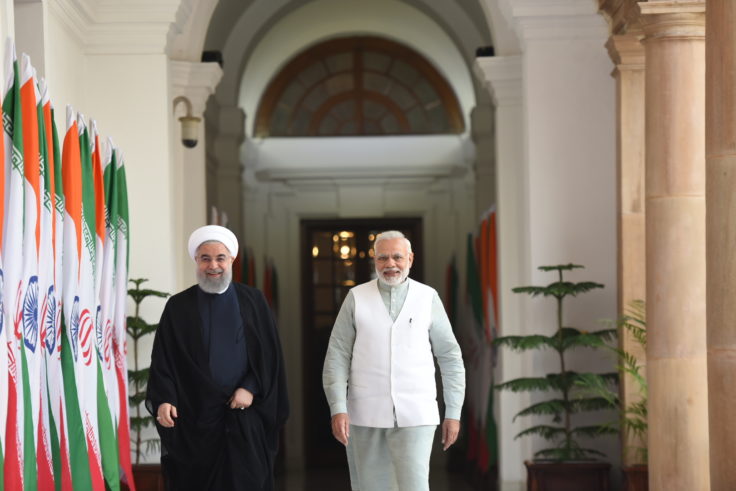
However, in the face of an opportunity to bring much-needed warmth into the relationship, India’s silence on the sanctions and the absence of considerable efforts to provide medical aid and other financial relief to Iran may only exacerbate tense bilateral relations, and inevitably lead to Iran further questioning India’s loyalty. Indeed, it would not be the first time. Last year also saw Iran questioning India’s resilience as the U.S. shadow hindered progress in the bilateral relations, yet, Iran had still expressed hope for better ties.
While India has remained silent on U.S. sanctions, both China and Pakistan have swung into action. China has denounced the sanctions and proceeded to help Iran while Pakistan has also called for lifting sanctions. The competing interests from China and Pakistan in Iran are something that India cannot overlook. In this regard, India, buckling under pressure from the United States, toeing Trump’s line at the cost of damaging relations with Iran represents a failure to uphold the doctrine of strategic autonomy, which envisages India’s independent pursuit of foreign policy and international relations based on the strategic merits of the issues while restricting undue dictates of foreign powers.
This silence is a clear message that New Delhi is with Washington. New Delhi turning the cold shoulder on Tehran and disregarding the humanitarian concern could end up causing permanent damage to its interests in Tehran and the wider West Asian region.
Balancing Iran and the United States
India, therefore, ought to consider offering a helping hand to Iran for the merit of humanitarian consideration and the realist logic of not losing a strategic partner. India had in the past continued with trade despite similar sanctions from the United States. Between 2012 and 2015 under sanction by the Obama administration, India reduced oil purchases from Iran but did not stop completely. Perhaps, India can pursue the same policy, at least as a temporary measure. With traditional American allies, such as as Japan and European partners distancing themselves from the Trump administration’s Iran policies and offering support despite U.S. sanctions, New Delhi has an important opportunity to extend it’s already increasing medical diplomacy.
Although the United States has a history of tensions with Iran, the current hardline stance is driven significantly by the Trump administration. With upcoming elections, the policy may shift in the next year—if not then, potentially in the next four. Therefore, India’s long term strategic interest in the region merits moving towards rapprochement with Iran even if it incurs certain short-term costs from U.S. frustration. The all but certain Democratic contender in upcoming U.S. elections, Joe Biden, not only endorses Obama-era Iran policies (perhaps indicating re-entering the nuclear deal) but also criticizes Trump’s approach as “dangerously close” to starting a war with Iran. Given this, India has greater leverage as it could gain waivers from a Democratic president as it did under Obama (Obama offered sanction waivers to countries that complied with “significant reduction” in their oil import and left it to the discretion of administration to define “significant reduction”).
With traditional American allies, such as as Japan and European partners distancing themselves from the Trump administration’s Iran policies and offering support despite U.S. sanctions, New Delhi has an important opportunity to extend it’s already increasing medical diplomacy to Iran.
Moreover, India’s relations with the United States have steadily improved during the past two decades. Geostrategically, India now occupies a central place in Washington’s Indo-Pacific policy. The recent renaming of the Pacific Command of the U.S. military to U.S. Indo-Pacific Command attests to the growing importance of India to the Pentagon. The 2019 Department of Defense Indo-Pacific Strategy Report further affirms India’s significant role in the Pentagon’s Indo-Pacific policy. In this respect, India must recognize its importance in Washington’s foreign policy calculus and that the United States is unlikely to significantly alter its relations with India.
Further, stronger India-Iran relations may also act as a counterweight to China’s clout in the region, and projects such as Chabahar Port and the trilateral connectivity initiative between India, Iran, and Afghanistan also have the potential to contribute to Afghanistan’s economic security further complementing U.S. policy in South Asia. As a recent paper by Sumitha Narayanan Kutty notes, the Iranian factor may be less of an impediment to the India-U.S. bilateral relationship than it appears. So long as India avoids overly tilting towards Iran, its regional policies should not come into conflict with the United States’ broader goals in South Asia.
Iran in India’s Long-term Regional Policy
Above all, as a broader policy strategy, this is an opportunity for India to engage proactively in the Iran-United States split, which has been a pressing concern for New Delhi. India can make use of the opportunity for rapprochement in the short-term to position itself as a potential mediator in the long-term if it is able to maintain relations with both nations.
In a lecture in Singapore in 2015, India’s then foreign secretary and current Minister of External Affairs, Dr. S. Jaishankar, said that India’s “foreign policy dimension is to aspire to be a leading power, rather than just a balancing power” and acknowledged the importance of shouldering greater responsibility. If these statements reflect anything about India’s commitment to pursuing a greater and ambitious role in the international system, New Delhi certainly needs to find ways to overcome the challenges it is facing during this global crisis. COVID-19 represents an unprecedented human security crisis that requires collective resolve at the global level and India can certainly play a leading role in that.
***
Image 1: MEA India via Flickr
Image 2: MEA India via Flickr
